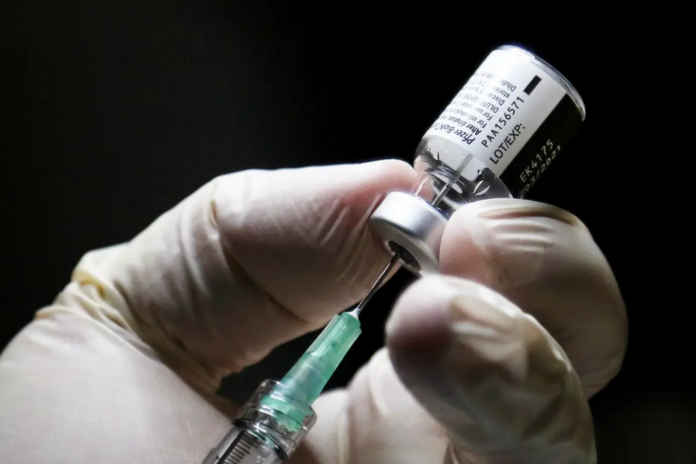Nearly one in three COVID-19 vaccine recipients suffered neurological side effects: study
A health care worker prepares a dose Pfizer/BioNTech COVID-19 vaccine at The Michener Institute, in Toronto, Canada, on Dec.14, 2020.
The people included in the study suffered from headaches, tremors, muscle spasms, insomnia, sleepiness, vertigo, and difficulty in concentration.
Almost a third of individuals who received a COVID-19 vaccine suffered from neurological complications including tremors, insomnia, and muscle spasms, according to a recent study published in the journal Vaccines.
The study analyzed 19,096 people who received COVID-19 vaccines in Italy in July 2021, out of which 15,368 had taken the Pfizer vaccine, 2,077 had taken the Moderna version, and 1,651 took the AstraZeneca version.
While both Pfizer and Moderna are mRNA vaccines, AstraZeneca, being an adenovirus vaccine, uses a different mechanism to trigger the immune response.
The study found that about 31.2 percent of vaccinated individuals developed post-vaccination neurological complications, particularly among those injected with the AstraZeneca jab. Different vaccines had a different “neurological risk profile.”
The neurological risk profile of the AstraZeneca vaccine included headaches, tremors, muscle spasms, insomnia, and tinnitus, while the risk profile of the Moderna vaccine included sleepiness, vertigo, diplopia (double vision), paresthesia (a feeling of numbness or itching on the skin), taste and smell alterations, and dysphonia (hoarseness or loss of normal voice). None of the subjects were hospitalized or died.
As to Pfizer vaccines, researchers found “an increased risk” of cognitive fog or difficulty in concentration.
AstraZeneca Risks
More than 53 percent of individuals who took an AstraZeneca shot suffered from headaches, which usually lasted for one day. Over 13 percent developed tremors, which typically reverted after a day as well.
For the rest of this article please go to source link below.

